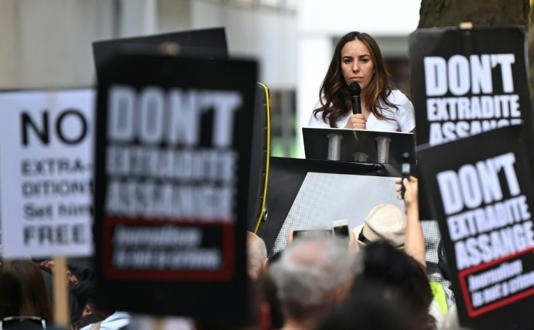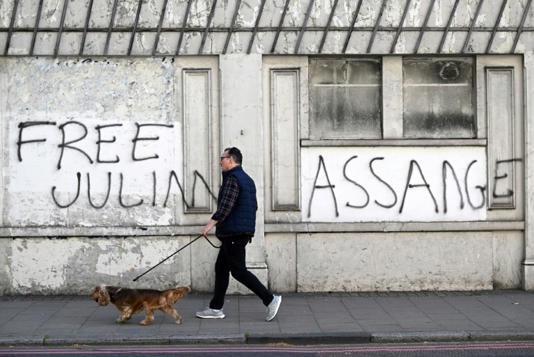
views
Britain on Friday approved a US government request to extradite WikiLeaks founder Julian Assange to face trial over the publication of secret military files, prompting outrage from his supporters.

Home Secretary Priti Patel's interior ministry said Assange had 14 days to appeal the decision, which comes after a UK court issued a formal order clearing his removal in April.

Assange's supporters have held frequent rallies to protest the planned deportation in what they claim is a defence of media freedom and free speech.

His wife, Stella, has pleaded for his release from custody after they had two children in secret he was holed up for years in Ecuador's London embassy.
WikiLeaks called Patel's decision a "dark day for press freedom and for British democracy" and vowed to pursue the appeal to the High Court".
It accused the United States of having "plotted his assassination".
"Julian did nothing wrong. He has committed no crime and is not a criminal. He is a journalist and a publisher, and he is being punished for doing his job," the group said in a statement.
WikiLeaks said the case was "political", as Assange published evidence that the United States "committed war crimes and covered them up".
The extradition was an attempt to "try to disappear him into the darkest recesses of their prison system for the rest of his life to deter others from holding governments to account".
The head of Amnesty International said the government's approval of the extradition "sends a chilling message" to journalists.
"If the extradition proceeds, Amnesty International is extremely concerned that Assange faces a high risk of prolonged solitary confinement, which would violate the prohibition on torture and other ill treatment," said Agnes Callamard.




















Comments
0 comment